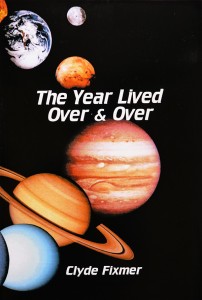
Review by Grace Cavalieri
How fine to have this book, a series of poems, retrieved from a 16-year period, 32 years ago. It makes us happy when publishers are willing to go against the grain to respond to leadership in writing, bringing it from where it was to a future world. The core ideas are plainspoken ones. It could be a Norman Rockwell world layered and made sophisticated by an innovation of language and the wisdom of a philosopher. Each poem has its own trajectory with the inner explosion of self knowledge. The poetic range is psychological; the poetic changes are spiritual.
SOUL FOOD
I was gone three days on retreat.
In my place, I left the feeder,
an electric device designed
to cascade water as needed,
its timer set twice daily
to drop cat kibble in a bowl.
Tho’ I’ve been home all summer,
my cats sit, transfixed
by that motorized cornucopia,
as if they are piously praying,
waiting more patiently for manna
than the Children of God ever did.
More reviews by Grace Cavalieri available at The Washington Independent Review of Books
Some Notes on Poems from The Year Lived Over & Over:
Commentary by Clyde Fixmer
On “Minutes”
Every poet I ever read has written about time. It’s one of those universal attention-getters. The idea for this poem came to me around 1973, and like most poems it’s been revised many times. Most of the changes were slight: The original first stanza read:
Minutes are frail glass swans
On the corner-shelves of spinsters,
almost invisible to us,
almost too delicate for handling.
and stayed that way until last year. The original last stanza was:
Minutes—mine, yours—common
As rabbits, irretrievable as buckshot.
We hide from them
Until they hide from us….
I was never happy with the first two or last two lines. As soon as I revised the opening, the final two lines just appeared to me, and 40 years later I had finished it. By the way, the main reason I revised this poem so often was that I had to keep the poem’s form to 12 lines and 60 words. I wanted the lines to represent the hours on a clock, and the word count to stand for the minutes in an hour. (A little hokey, maybe, but I couldn’t force myself to abandon those parameters.)
On “Possum”
My dissertation was on James Dickey’s poetry, and as you might imagine, every 3rd poem I wrote at that period was an unashamed imitation of The Great Man’s style. Dickey wrote literally hundreds of poems on the theme of human-becomes-nonhuman, in which the poem’s narrator changes form, or in some manner enters into the essence of another sort of being or entity. “Possum” is one of my early attempts at Dickey worship. My dedication to Bob Wrigley stems from the fact that he was my creative writing student in 1971—and the only one of all my pupils who has become a huge success. As you might assume, he is also a big fan of James Dickey.
On “A Recipe”
As with the subject of time, most poets I’ve read also wrote at least one poem about the process of writing. In the mid-’70s, I read a well-known poem about writing poetry—I think it was by Kenneth Koch—in which he says, “Poems are made from wishes, lies, and dreams.” Many years later I found my earlier version, and it evolved into my final version. (As you can see, I “borrowed” his idea.) I first titled it “A Recipe for Antimatter” because I had thought the poem was about writing science fiction. So I dedicated it to my former classmate at the University of Oklahoma—the well-known science fiction novelist—and that’s its origin. But when I realized that the poem was not just about SF but also about writing creatively, I made a few changes, and this became the end product.
Read more poems and reviews by Clyde Fixmer at the Serving House Journal.




